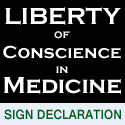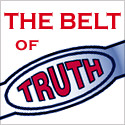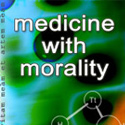Proclaiming Truth – Confronting Evil, Real and Fictional
Proclaiming Truth – Confronting Evil, Real and Fictional
Sometimes the horror of evil is too much for the mind to take in and more than we need to know. But the knowledge that such exists is enough to provoke action. Remember the Army general who, upon being confronted with the horror of German extermination camps at the end of WWII who said “take photos, lots of them” because there will come a time when people will not believe us.
It was out of that and the other horrors of Nazism that the nations of the world met together in 1948 to ensure that these atrocities would never again be repeated and that the Universal Declaration of Human Rights (UDHR) was formed and speaks to us so clearly today e.g. in article 18
Everyone has the right to freedom of thought, conscience and religion; this right includes freedom to change his religion or belief, and freedom, either alone or in community with others and in public or private, to manifest his religion or belief in teaching, practice, worship and observance. http://www.un.org/en/documents/udhr/
Similarly, article 18 1 of the International Covenant on Civil and Political Rights 1976 (ICCPR) declares the right
to manifest his religion or belief in worship, observance, practice and teaching. http://www.ohchr.org/en/professionalinterest/pages/ccpr.aspx
particularly noting that Article 4 states this to be a non-derogable right – one that cannot be overridden even in national emergency.
For further detail on this and the relevance to freedom see submission to The Expert Panel on Religious Freedom http://www.medicinewithmorality.info/wp-content/uploads/downloads/2018/04/Religious-Freedom-Submission-NO-NAMES.pdf
There are times when we need to understand the times and know what to do, like the Men of Issachar (1 Chronicles 12:32). There are those that need to be informed, those that need to inform (yes, our preachers included) and those that need to participate in the confrontation even at the risk of being, in turn, condemned by others for the proclamation of truth.
It is here then, this sometime, this horror, that the realisation is obvious – THIS IS NOT OK. We try not to dwell on the detail but the horror compels action.
Sometimes you just gently teach
Sometimes you preach with invitation
Sometimes you confront and challenge
Sometimes you have to condemn
Sometimes you have to drive the money-changers out of the temple
Sometimes you have to walk with Christ to Calvary.
Confronting gratuitous, fictional evil
In contrast then is the use of gratuitous, fictionalised violence that is in some literature, frequently not essential to the plot (in that sense, gratuitous) and even when it is essential, the detail is not. We must also say, in this instance THIS IS NOT OK.
However, the reality is that it is frequently presented as BEING OK and sometimes is included to attract and titillate and sell.
Reading about sexual violence in history – rape in war, sexual slavery (even today) – should drive us into action against such.
But reading, and watching, gratuitous detailed sex – and yes, violence as in sadomasochistic sex – has the potential because it is presented as fictional to attract us into the story as fantasising participants – and ultimately acting out the story.
Such images destroy innocence and can lock in to neural pathways with life-long consequences in sexual thought and behaviour, demeaning of sex as God gave it, and to the wonder of marriage. It is far more than we need to know.
The inclusion of such fiction in a reading list in a Christian school represents a “failure to protect” – the condemnation of the church by the Royal Commission – and a “leading of little ones into sin”, the condemnation by Jesus in Matthew 18:6. To justify such on the grounds of artistic merit or the real world or preparation for exams is wide of the mark.
We have an obligation to ourselves and to the world to think of “good things” – as a man thinketh, so is he – aware of the fact that both “good and evil increase at compound interest” (CSLewis).
The Message expresses it well
Summing it all up, friends, I’d say you’ll do best by filling your minds and meditating on things true, noble, reputable, authentic, compelling, gracious—the best, not the worst; the beautiful, not the ugly; things to praise, not things to curse. Philippians 4:8.
The consequences if we ignore this kind of advice are both psychological and spiritual. We need to acknowledge that what we fill our minds with influences our thoughts and actions. Violent thought that we deliberately let into our minds fuels further violent thought. Truthfully, deep inside ourselves, we are aware that such exposure does us no good – it is not uplifting; it does not spur us on to greater things; it does not facilitate our enjoyment of people or the simple pleasures of life.
There is a world of difference between understanding and acting on real world evil and evil presented as fiction. The latter – even if meant to awaken re real evil – should not be detailed and should not be presented to immature minds.






